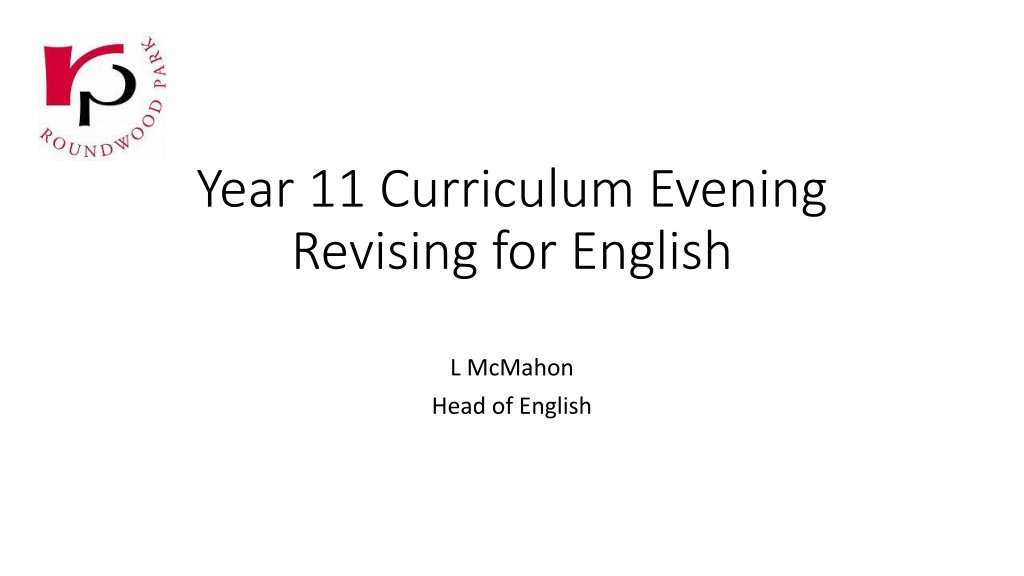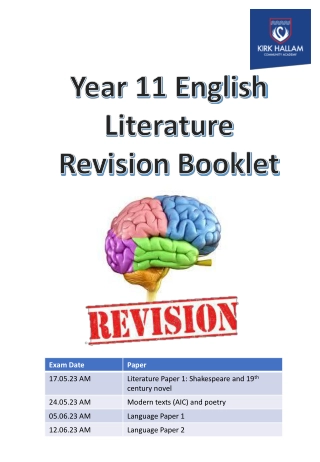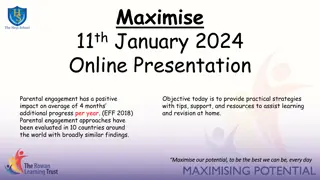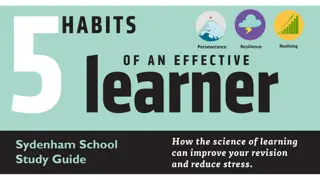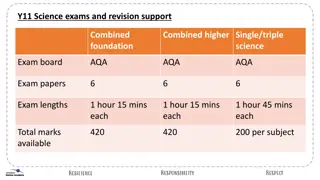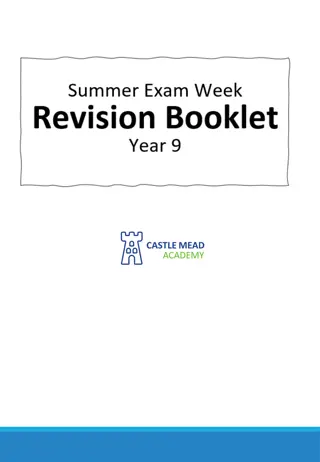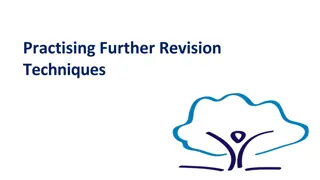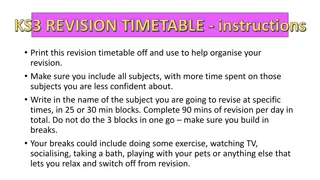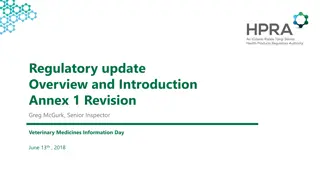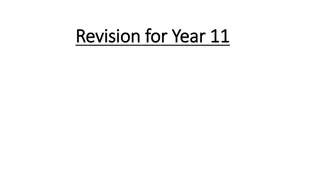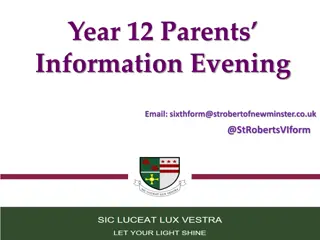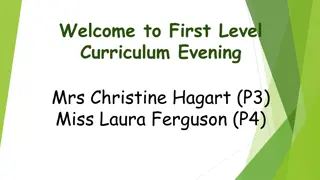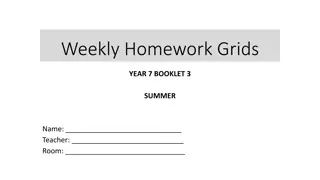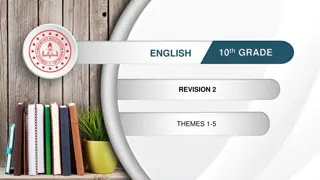Year 11 English Revision Tips for Language and Literature Exams
Prepare effectively for your Year 11 English Language and Literature exams by revising key strategies and tips provided by L. McMahon, Head of English. The revision guide covers essential areas such as exploring creative reading and writing, understanding viewpoints and perspectives, memorizing quotations, and gaining in-depth knowledge of texts. Utilize the recommended revision techniques to enhance your performance in the upcoming assessments.
Download Presentation

Please find below an Image/Link to download the presentation.
The content on the website is provided AS IS for your information and personal use only. It may not be sold, licensed, or shared on other websites without obtaining consent from the author. Download presentation by click this link. If you encounter any issues during the download, it is possible that the publisher has removed the file from their server.
E N D
Presentation Transcript
Year 11 Curriculum Evening Revising for English L McMahon Head of English
Outline November Mock Revising for English Language Revising for English Literature Tips for reluctant revisers
November Mock English Language Paper One: Explorations in Creative Reading and Writing 1 hour 45 minutes Students will be assessed on the whole paper. English Literature Paper Two: Modern Texts and Poetry 1 hour 30 minutes Students will be completing both poetry sections of this paper only.
Revising for English Language Paper One: Explorations in Creative Reading and Writing 1) Reading read as many short stories/extracts as possible. Practise putting words you don t know into context and ensuring that you understanding the narrative 2) Timing Past papers learn the timings for each section and go over them. How much can you write in 12 minutes? If you haven t finished add what you would like to say in another colour. How long does it take you? How much time do you need to shave off? Try again, where can you save time? 3) Writing Use picture stimuli to develop planning and writing skills, go over mock papers and review EBIs. 4) VLE Past papers and a variety of revision resources.
Revising for English Language Paper Two: Writers Viewpoints and Perspectives 1) Reading this paper focuses on non fiction texts expressing ideas from a viewpoint. Read a selection of newspaper articles from broadsheet newspapers. Check your understanding. The Guardian has a helpful Opinion section on the website (which is not behind a pay wall). 2) Similar revision activities to Paper One, just remembering the different non fiction focus. The key to this paper is reading and timing.
Revising for English Literature This is slightly different to English Language, as rather than focusing on the skills required, there is also the need to remember quotations and have an in depth knowledge of the texts covered in class. Regardless of which text has been studied, the principles of revision remain the same. The papers are split as follows: Shakespeare and the 19th Century Novel Macbeth A Christmas Carol/Jekyll and Hyde/Frankenstein Students should endeavour to re-read the texts more than once before the exams. Reading it in class, isn t enough! Using highlighters, Post Its and sticky arrows are useful to note where themes and characters are developed. It s also a good way to note progress! Modern Texts and Poetry An Inspector Calls/Pigeon English Power and Conflict Poetry Unseen Poetry
Revising for English Literature Creating visual interpretations Whether that is using images to create representations of key quotations or creating an outline of the text (see Macbeth example). This can be a helpful way to visualise quotations and understanding their deeper meaning. These can be displayed in bedrooms or around a study space as a reminder.
Using Technology Educational quizzes Kahoot has a wealth of quizzes as does Quizlet. Revision podcasts Not in the mood for writing, listen to a podcast instead! Drift off to sleep listening to exam tips. Youtube Mr Bruff and other teachers have some interesting revision videos, especially when it comes to poetry. Seneca Learning
Other Methods Create 200 word mini versions of the texts studied Summarise poems in one sentence Using knowledge organisers transform the information into something else. Flash cards Group quizzes Teach your dad/mum/nan/dog etc.
Tips for Reluctant Revisers Your child may not necessarily see themselves as a reviser . To ensure success they need to make this part of their identity this comes from repetition and routine. 1) Use the two minute rule 2) Habit stacking 3) Habit stacking and rewards
